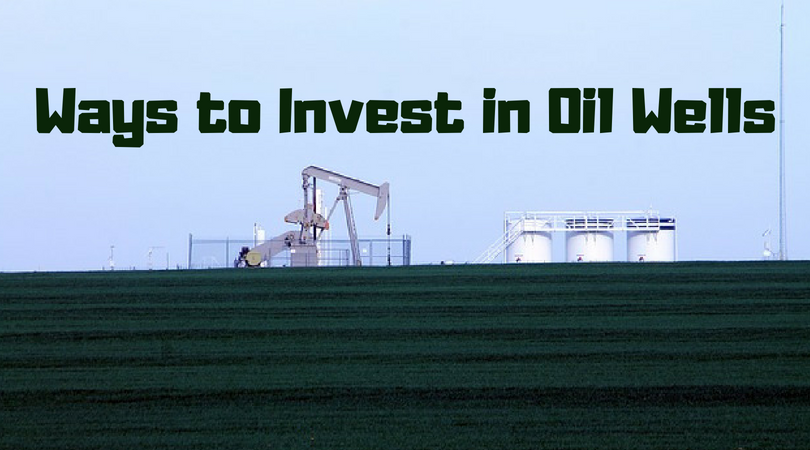The truth is that oil makes the world go around and there is no sign that this is going to be changing in the near future. Petroleum demand is high whilst supply remains in a steady decline, and this only makes it more and more valuable. With its multitude of different uses throughout different industries, it is a key component in processes like plastic production and lubrication. Oil can also be converted into other valuable things such as diesel fuel, electricity, and even fertilizers.
If you don’t have any oil drums to hand, though, and don’t own land with oil lying deep below the surface, there is a way you can still make money on it – through investing. How to invest in oil wells is a question which has been asked many times before, and it is well worth looking into if you are looking at starting or expanding an investment portfolio.
#1: Means of Investment
Oil investment can be done in several different ways. The easiest and most profitable way is to look at the industry as a commodity and look to profit from changes in prices of oil-based products. This isn’t the only way, though it is by far the most popular. Other means of investment include –
- Mutual funds and EFTs where you buy shares in oil and gas-focused mutual funds which provide you with access to the commodity without taking any risk.
- Large-cap stocks where you simply buy publicly-traded oil and gas company shares on the stock exchange. British Petroleum, Petro China, and Chevron are just a few of many companies which trade shares on the open market.
- Purchasing derivatives such as futures contracts. This is one of the least popular means of investment as they carry a high level of risk.
There are many ways you can begin investing in oil and these three demonstrate only a few of the possibilities. Each method carries its own level of involvement on your end, its own inherent risk and its own level of return. Before investing, it is important to consider all your options, whether you are comfortable with the possibility of making a loss and, if you can, seek the advice of a professional.
#2: Advantages of Oil Investment
 As with anything, there are pros and cons which should be weighed up when making an investment decision.
As with anything, there are pros and cons which should be weighed up when making an investment decision.
The pros of oil investment include –
- Potential for Profit
Investments in companies, especially smaller ones, can pay off big. Really big. A single oil well can easily generate several times more capital than it costs to drill, and this can pay your dividends for many years to come.
- Diversification
Historically, investments in oil have proven to be a diversifier against the economy. When the prices of oil rise, the economy tends to stagnate a bit which can then have an impact on your other stocks and shares, however, when oil prices rise, oil stocks usually rise with them. Exposure to oil and gas stocks can really help protect your entire investment portfolio against the economic downturn in response to the oil market.
- Tax Benefits
In the U.S. there are some tax benefits with oil investing. The IRS, for example, allows companies to deduct from taxes for depletion, similar to how the IRS enables rental real estate depletion to be tax-deductible. If you were to buy shares in a publicly traded company, the benefits wouldn’t really impact you, however, if you were to become a member of a limited partnership then the tax benefits would impact you. Remember, depletion can easily be the difference between a commodity which provides cash flow or loses money.
#3: The Cons of Investment
- Volatility
This is the most obvious downside to investing in oil: it is a volatile and unpredictable finite natural resource whose value is prone to peaks and falls. Price swings can be wild, and these can have devastating effects on not just the economy, but the investor too. Losses of 50% are not unheard of and they can destroy your investment portfolio.
- It is Complex
The rules which govern oil companies and investments are complicated, especially when it comes to taxes and trying to sell your interest. Interests in companies aren’t for everyone, and you need to figure out whether you’re up for the task. Unless you are a very experienced investor or are in a position to take risks and commit your money for extended time periods, you should not be looking at investing in a limited partnership.
- Commissions
If you do buy into a corporation or partnership, then you will usually have to pay a commission to a broker or intermediate party. These commissions are almost always much higher than your standard commission paid to a regular stockbroker, and they can be as high as 20% depending on how illiquid the company is.
Investing in oil and oil wells is a huge step, and there are many ways you can get involved in an industry dealing with a commodity the world relies on. If you do decide to get involved, it is important to understand that the market is very unpredictable, it is governed by very complex rules and the market’s state can change in an instant. It is not unheard of for price changes to wipe out entire investment portfolios, so if you are brand new to investing it is probably a good idea for you to start with something smaller first.
P.S: If you enjoyed resing this article, please add your comments below. Also, Join our EAT FREE Community where you can make some money, making the planet better.




Middle Ages as in Western